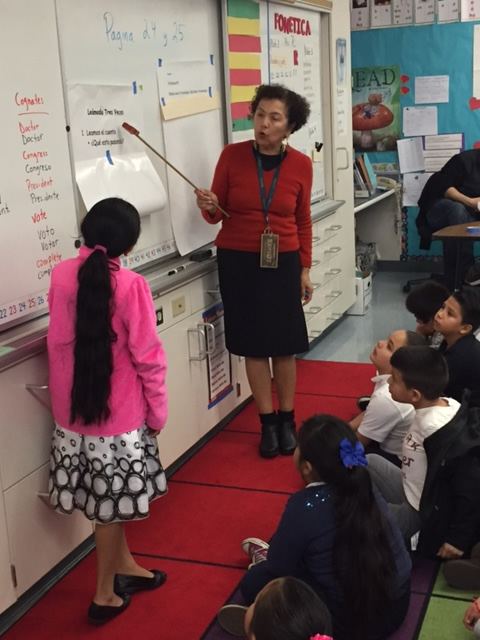Second Grade Lesson Study
Following is the agenda and materials used by the second grade team. Their experience was different that the two previous teams, in that they started their work by observing students during a lesson taught by one of the teachers on problem solving – their chosen topic. They collected data from one classroom of students on the strategies and skills they were currently utilizing.
Agenda
| Time | Activity |
|---|---|
| 8:00 | Introductions – warm up |
| 8:15 | Norms and Roles |
| 9:00 | Data Collection : Observe students engaged in a mathematical task related to the student learning (word problems) we will focus on. Observe and collect data on what students can do and where they struggle. 9:00 – 9:15 discuss the proposed tasks. 9:15 – 9:45 observe students. |
| 9:45 | Debrief |
| 10:00 | Break |
| 10:20 | Looking at curriculum and research. Deepening our own understanding of the concepts we teach. “Overcoming the Walls Surrounding Word Problems” by Gregorio Ponce and Leslie Garrison, Teaching Children Mathematics; Elementary and Middle School Mathematics, Chapter 4, John A. Van De Walle: Teaching Student-Centered Mathematics K-3, Chapter 3, John A. Van De Walle. (include links to reading materials) |
| 11:00 | Discussion of research and how it relates to the topic for our Research Lesson. |
| 11:45 | Break |
| 12:00 | Working Lunch Planning a Research lesson for Friday Student practice goal Unit goal Lesson goal Sequence of events Points to notice Data collection ideas |
| 1:30 | Summary of the day and tasks for tomorrow. Reflection |
| Time | Activity |
|---|---|
| 8:00 | Review of the lesson. Further investigation of research on the topic. |
| 9:00 | Research Lesson in one classroom |
| 9:45 | Break |
| 10:00 | Debrief the lesson |
| 11:00 | Revising the lesson and teaching in another classroom is a possibility (or not). If we want to look at it again, we could, or go on to planning. We can talk about this on Thursday. |
| 12:00 | Lunch |
| 12:45 | Backward planning the next unit. Series of lessons. Where do we want students to be? What will they be able to do and say? What experiences will they need to have to accomplish these goals? How will we know they have gotten there? |
...
Lesson Study Materials
